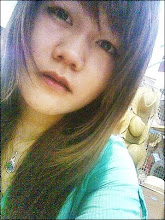*I can find information about Nobel Prize from http://www.nobelprize.org/

* All Nobel Laureates 2009
Nobel Lectures in Physiology or Medicine
Monday, 7 December at 1:00 p.m.–3.30 p.m. (CET)
Karolinska Institutet, Stockholm, Sweden
Telomeres and Telomerase: The Means to the End by Elizabeth H. Blackburn
Telomerase and the Consequences of Telomere Dysfunction by Carol W. Greider
DNA Ends: Just the Beginning by Jack W. Szostak
Go to Encyclopedia Online at http://library.spu.ac.th/ Search for the history of automobiles or computer. Summarize the information you get.
 food adulteration
food adulterationfood adulteration act of intentionally debasing the quality of food offered for sale either by the admixture or substitution of inferior substances or by the removal of some valuable ingredient. The Greek and Roman classics contain allusions to wine makers and dealers who colored and flavored their wine. In England as early as the 13th cent., bakers cheapened their wares or scanted the weight, and lawmakers for the first time made an effort to prevent fraudulent dealings on the part of butchers and brewers. In Great Britain in the 18th and early 19th cent., coffee, tea, and cocoa were placed under protection laws by Parliament, passed not so much in the interest of the consumer as to keep up internal revenues. About the middle of the 19th cent. chemical and microscopal knowledge had reached the stage that food substances could be analyzed, and the subject of food .
Reference books are used to find factual information on a subject, and are not usually read all the way through or chapter by chapter. In a K-12 library, reference books are usually located in a special reference collection area, and cannot be checked out. Reference books include dictionaries, encyclopedias, thesauri, almanacs, atlases, and directories.
When do you need to search information from the reference collection?
*When I want to know about meaning, spelling, pronounciation of words.
What type of reference collection that you like to use most? And why?
The type of reference that I like to use most is Dictionary because dictionary is containing information about words, meanings, derivations, spelling, pronounciation, syllabication and usage. And all of those are helpfull to learn English.
Ex. Oxford Dictionary book
Handbook
*Writing College Handbook
Topic:Choose a Topic You Really Want to Think About
If you're free to choose your own topic, pick on in which you are genuinely interested and about which you want to know more. You have to know something about any topic you write on, but writing is not just an act of transmitting information. It should also be an act of learning.
If you're free to choose any topic at all, you might well try to find something from your own experience, something that will let you explore yourself, perhaps something that you have never fully described or analyzed to anyone, even to yourself. The richest moment of our experience are often born out of conflict. Suppose you recall a time when you were made or asked to do something you did not want to do. When and where did it happen? How did you feel about having to act against your will? How did you feel about the person who asked you to do so? What did you learn from the episode?
Raising questions will help you to think more about any subject. If you know something about ceramics, say, or kayaking, you might ask a specific question about that. What make kayaking so different form rowing a boat or paddling a canoe? Does centering a clay pot on a wheel have anything to do with finding the center of your own existence? It's alwanys an advantage to write about what you know. But if you start writing on the assumption that you know it all, you drain the life out of the writing process.

No comments:
Post a Comment